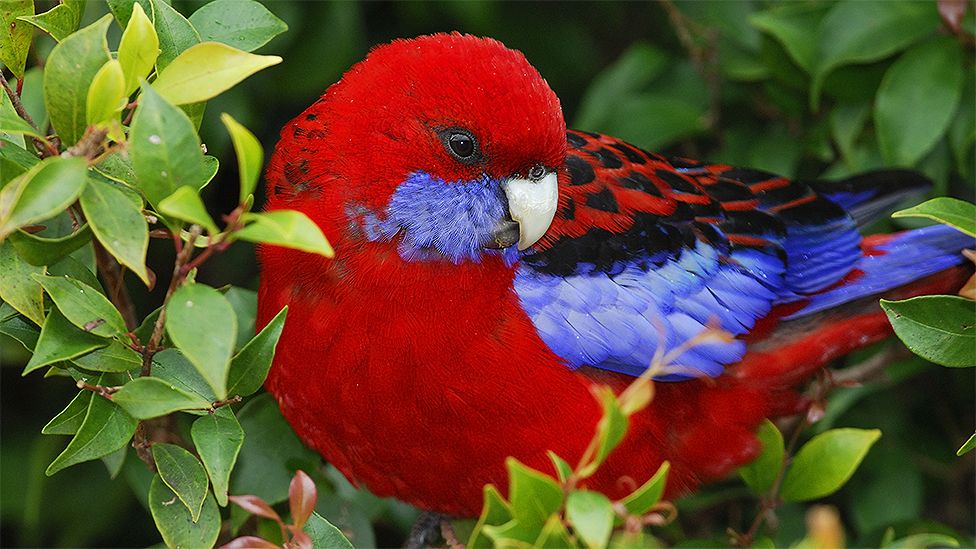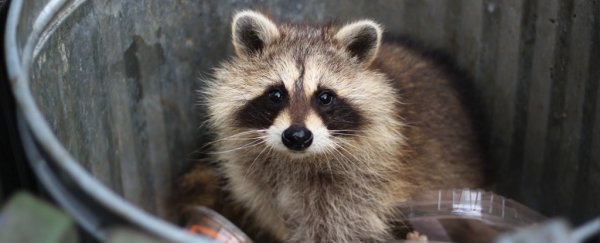Oxytocin (OXT) is a hormone that is known for its effects on psychological well-being and emotional bonding in animals. Interestingly, research has shown that this natural chemical in the brain plays a crucial role in other cognitive processes as well, including learning and memory.
Wednesday, February 21
Oxytocin Influences Animal Behavior
Oxytocin (OXT) is a hormone that is known for its effects on psychological well-being and emotional bonding in animals. Interestingly, research has shown that this natural chemical in the brain plays a crucial role in other cognitive processes as well, including learning and memory.
Wednesday, October 5
Zero Extinction Plan
Australia's environment authorities on Tuesday presented a plan to bolster protection and restoration of the country's threatened species and natural places.
"The need for action to protect our plants, animals and ecosystems from extinction has never been greater," Environment Minister Tanya Plibersek said in a statement.
Australia's questionable conservation record
Australia, while ranked among the world's wealthiest countries, gets a poor score when it comes to the protection of its animal species.
"Australia is the mammal extinction capital of the world," Plibersek said.
Wildlife advocacy groups say that animal habitats are in decline due to human activity, and events like the devastating 2019-2020 Black Summer bushfires are estimated to have killed, injured or displaced around 3 billion animals.
"The Black Summer bushfires in particular have seen devastating results for many species. We are determined to give wildlife a better chance," said Plibersek. READ MORE...
Wednesday, September 15
Shapeshifting Animals
 |
| IMAGE SOURCE,GETTY IMAGESimage captionAustralian parrots' beaks are getting bigger as temperatures rise |
The scientists behind the study warn the physiological changes do not mean animals are coping with climate change. "A lot of the time when climate change is discussed, people are asking 'can humans overcome this?' or 'what technology can solve this?'" says the study's author, Sara Ryding, from Deakin University. "It's high-time we recognised that animals also have to adapt to these changes."
Climate report is 'code red for humanity'
A really simple guide to climate change
Wildlife forced to move or adapt by climate change
If animals fail to control their body temperature, they can overheat and die. Some animals in warmer climates have historically evolved to have larger beaks or ears to get rid of heat more easily. A larger wing, ear or beak relative to body size gives smaller animals a greater surface area from which to lose excess heat. READ MORE
Wednesday, August 25
Animals Growing Bigger

Human activity has shrunk the size of wild animals the world over, and yet recent research has found many mammals living near cities have become steadily larger, both in length and in weight.
The findings are unexpected. Sprawling urban environments, with their vast swathes of sun-soaked cement, can grow much hotter than natural habitats, and warmer temperatures usually benefit mammals that have a smaller, more energy efficient stature – a principle of biology known as Bergmann's rule.
As the world grows warmer, some scientists have worried that mammals living near cities are doomed to grow smaller, possibly reducing their fitness as a species and, no doubt, the fitness of their predators, too.
But even with climate change, that might not happen. As it turns out, there's another factor in determining a mammal's size that might rival or even exceed temperature, and that is food.
In and around cities with dense populations, where high-calorie human scraps are more widely available and predators are fewer and farther in between, new research discovered that most of the mammal species studied – such as coyotes and raccoons – appear to be growing in size, not shrinking.
That extra bulk has been noted before by both scientists and members of the public. Yet the reason or reasons why have rarely been explored. READ MORE
Thursday, October 22
Fall Morning Breakfast
Unlike most of these people, I am retired and my breakfast is late in the morning usually more brunch than breakfast and only after I have been awake for 2-3 hours do I feel like eating anything more than just drinking coffee.
Usually, I will get a package of grits and add water, toss it in the microwave along with a vege sausage while I am scrambling up an egg that I will mix all together with some grated cheese. If I am tired of scrambled eggs, I will toast an English Muffin and fry an egg along with a vege sausage and a slice of American Cheese.
Once my breakfast is cooked, I will sit on the back screened in porch and watch the bluebirds fly in and out of the house I built for them using old decking.
My breakfast is usually only 300 calories but sometimes I add a little something extra and my intake grows to 500 or so. My plan is to eat no more than 500 calories at each meal along with snack(s) that do not exceed 500 calories so that my total daily intake is less than 2,000 calories each day. I would like to reduce that intake to 1,500 making sure that protein, dairy, grain, veges, and fruit is most of the time included.
I like Fall Morning Breakfasts because I can sit outside and watch nature while I eat... this usually consists of a variety of birds, rabbits, butterflies, and squirrels... but, if I decide to sit on my front porch, I am just about guaranteed to see a family of deer in the field across the street.
It is a simple but rewarding life.





















































